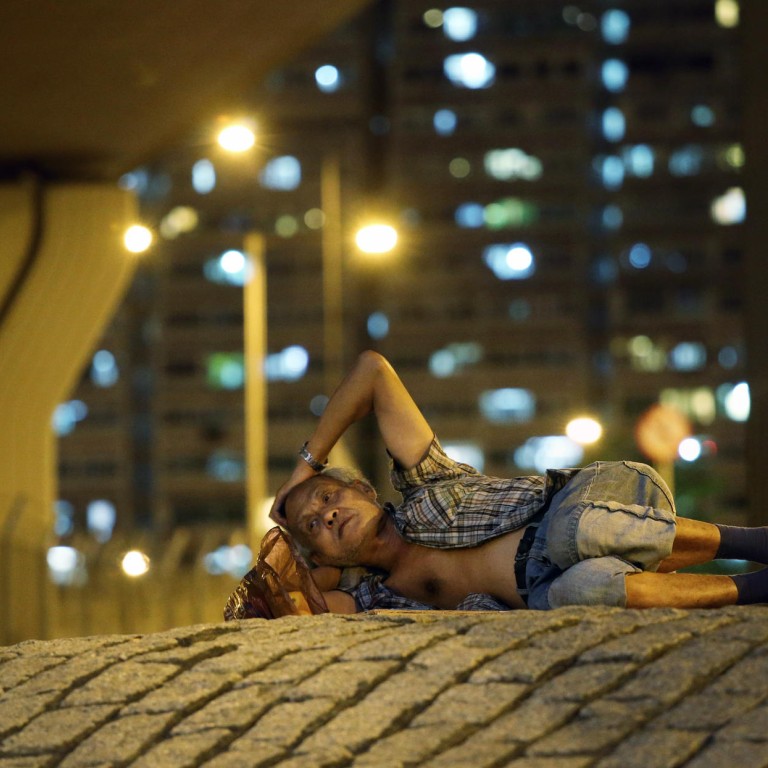
Down, out and waiting to be evicted
Many of the 17 homeless people living under a flyover have ignored a notice to leave
Homeless people living under a flyover in Yau Ma Tei are worried that officials may come any time to grab their few belongings and force them out to make way for "greening work" and a park for pets.
The 17 street sleepers who live under the flyover in Ferry Street received notices to move elsewhere early last month while about 200 heavy flower pots have been installed along the now partly fenced-off area.
Mike, a 35-year-old Indian refugee who came to Hong Kong in 2007, set up home under the flyover three years ago.
He could not work because of his refugee status and could not afford the initial deposit to rent accommodation.
"I am very angry … who will give me the money to rent a place?" he asked.
John, 36 and of Nepalese origin, was also angry that the government would rather use millions of dollars for flower pots instead of helping to relocate them.
"It's noisy and hot here and there's no electricity, so I could not read, write, sing and play my guitar … but we have a happy life with the Indians and others."
The flower pots are part of the greening works costing HK$2.53 million, and are separate from a bigger project costing HK$32 million to transform the area.
There are plans for a park for pets and a mini-car racing circuit.
Since the notice was issued, three of the homeless people have moved into a 77 sq ft room in a subdivided flat and one has moved to a cubicle apartment. The rest have either remained at Ferry Street or have moved to other flyovers.
Ng Wai-tung, of the Society for Community Organisation, said the government should not force them to leave until it has a settlement plan for them.
He added that Yau Tsim Mong district had a big proportion of the more than 60,000 people living on the city's streets, and he was worried that there would be more evictions to come.
He said people slept in the streets not because of personal problems but social problems as Hong Kong rents were unaffordable to many and the public housing schemes did not favour unmarried applicants.
The Home Affairs Bureau said government officials had always been concerned about the conditions of street sleepers in Yau Ma Tei and had tried to help them find suitable accommodation, including hostels for single people and private places for them to rent.
